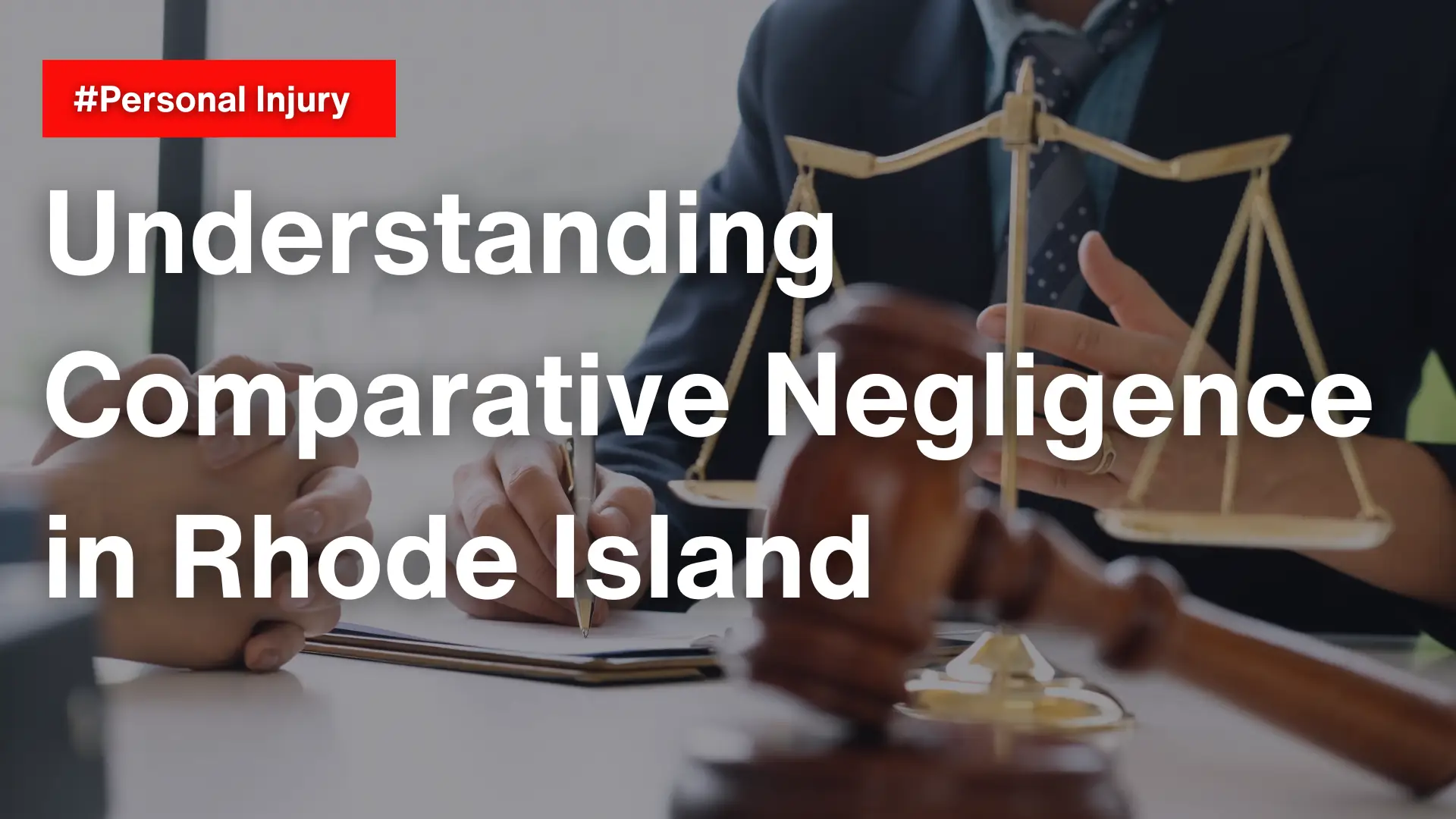 Were you recently in an accident in Rhode Island that you worry was partially your fault? If so, you might be wondering about whether you will be able to recover compensation from the other party. Rhode Island follows a system called comparative negligence, which means, depending on the circumstances, you could still be entitled to money from other at-fault parties. However, the rule also affects how much money you might recover. Here’s what you need to know about the system—including why it’s so critical to have the help of an experienced personal injury lawyer in Rhode Island.
Were you recently in an accident in Rhode Island that you worry was partially your fault? If so, you might be wondering about whether you will be able to recover compensation from the other party. Rhode Island follows a system called comparative negligence, which means, depending on the circumstances, you could still be entitled to money from other at-fault parties. However, the rule also affects how much money you might recover. Here’s what you need to know about the system—including why it’s so critical to have the help of an experienced personal injury lawyer in Rhode Island.
What Is Comparative Negligence?
Comparative negligence is a legal principle used in personal injury cases to determine the extent of each party’s responsibility in an accident or incident. Under this doctrine, the court hearing a personal injury case will weigh the evidence presented to it by both the plaintiff (the injured party bringing the case) and the defendants, then assign each a percentage of fault based on its findings. The plaintiff’s percentage of fault is then deducted from the compensation package the court would have awarded them if they had not been to blame at all.
Here’s a hypothetical example. Jim misjudges the speed of an oncoming car and turns left in front of it, causing its driver, Tina, to collide with his vehicle. Tina suffers a serious spinal cord injury as a result, and the collision totals her car. She sues Jim for $200,000 to cover her medical bills, lost income, vehicle damage, and pain and suffering. At trial, the jury determines that Jim is almost entirely to blame for the accident, but that Tina could have slowed sufficiently to avoid the crash if she hadn’t been driving 10 miles per hour over the speed limit. As such, the jury finds in favor of Tina, assigning Jim 90 percent to blame Tina the remaining 10 percent. As such, Tina recovers $180,000—the $200,000 award minus her 10 percent of fault.
Pure vs. Modified Comparative Negligence
There are two main types of comparative negligence: pure comparative negligence and modified comparative negligence. In pure comparative negligence states, a plaintiff can recover damages even if they are 99 percent at fault, though their compensation will be reduced by their percentage of fault. Let’s reverse our example above and say that it was Jim who sued Tina for $200,000. Assuming the jury hearing his case applied the same 10 percent of fault to Tina, Jim could recover $20,000 in damages under a pure comparative negligence system.
In modified comparative negligence states, a plaintiff can only recover damages if their level of fault is below a certain threshold, either 50 percent or 51 percent. For instance, if a bicyclist is 55 percent at fault for an accident with a car, they would not recover any damages in a 51 percent bar state. Conversely, if they were 45 percent at fault, they could recover 55 percent of their damages. This system aims to allocate responsibility more fairly and prevent heavily at-fault parties from tying up courts with low-value cases.
Note that Rhode Island follows a pure comparative negligence model. In other words, you could recover damages even if you were primarily to blame for an accident.
How Courts Assign Percentages of Fault
Courts make their decisions about fault after weighing the evidence and arguments presented to them by plaintiffs and defendants. A judge or jury serving as factfinder will review the evidence each side presents to the court, such as:
Eyewitness testimony
Photos of the accident scene
Security camera footage of the accident unfolding
Physical evidence, such as accident debris or damaged property
Medical records
Digital data like cell phone records
Do Insurance Companies Use Comparative Negligence
The comparative negligence system binds courts, not insurance companies. In other words, the at-fault party’s insurer is free to make you any settlement offer it thinks is fair—or even one it knows to be unfair. However, as a general rule, insurance companies make their decisions based on what they think a court will decide.
Remember, however, that insurance companies are for-profit businesses that want to keep those profits, not pay them out in claims. Before you accept an insurance company’s assessment of fault or sign a settlement offer, be sure to speak with an experienced personal injury lawyer in Rhode Island. There’s a good chance that your attorney can recover considerably more from the insurance company than whatever it’s offering you now.
How a Personal Injury Lawyer Can Help
 Insurance companies and defense attorneys will often use the comparative negligence model as a tool for reducing an injured party’s compensation. Every percentage of fault they can shift onto a victim may represent thousands of dollars they can save their employer or client. As such, you need an experienced personal injury attorney to help you maximize your compensation by minimizing the share of fault assigned to you.
Insurance companies and defense attorneys will often use the comparative negligence model as a tool for reducing an injured party’s compensation. Every percentage of fault they can shift onto a victim may represent thousands of dollars they can save their employer or client. As such, you need an experienced personal injury attorney to help you maximize your compensation by minimizing the share of fault assigned to you.
A good lawyer can thoroughly investigate the accident and recover crucial evidence of what happened and who’s to blame. Next, they can work with experts in fields like accident reconstruction, medicine, and accounting to bolster your claim and make it harder for the defense to fight back. Crucially, they can represent you in both settlement negotiations and at trial, translating the evidence they’ve recovered into a compelling account of your side of the story.
If you’re concerned about the cost of engaging experienced legal representation, don’t be. Most personal injury attorneys work on contingency, which means you only pay them if they win your case. That means it costs you no money out of pocket to get the experienced help you need to assert your right to fair compensation.
Contact Us Today
If you’ve been injured in Rhode Island, don’t let concerns about your own share of fault keep you from asserting your right to fair compensation. Law Offices of Ronald J. Resmini, Accident & Injury Lawyers, Ltd. offers free consultations to prospective clients, so there’s no harm in scheduling a case review to get our honest assessment of your options. Contact us online or by calling (401) 751-8855 to speak with a Rhode Island personal injury lawyer about your case.
